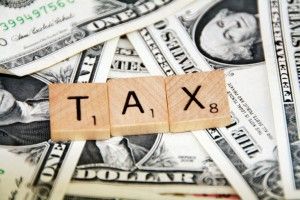Despite record tax haul, legislators pursue further increases
With a big tax surplus flowing into state coffers, California shattered records last year with a historic haul dwarfing those of other large states around the country. This year, meanwhile, legislators planned still further increases.
“During the 2013-14 fiscal year that ended last June,” the Sacramento Bee reported, “California collected $138.1 billion in taxes of all kinds, 16 percent of all state taxes collected in the nation and more than the next two states, New York and Texas, combined.” The majority of the sum came from personal and corporate income taxes, according to the Bee.
Money maze
At first blush, California’s cash-in promised straightforward results. “Through the end of March, state general fund revenue was about $1.3 billion ahead of projections,” Jason Sisney, California’s chief deputy legislative analyst, told the San Francisco Chronicle. “April revenue is likely to add at least $1 billion more than projected.”
But thanks to the Golden State’s arcane fiscal requirements, revenue was set to be apportioned in counterintuitive ways:
“Under the state’s budget formulas, ‘virtually all or more than all of the additional revenue, relative to projections, may be required to go to schools and other statutory and budgetary commitments, such as the state’s rainy-day fund and debt payments,’ Sisney said. As a result, ‘The amount of extra state money available for other purposes could be little or nothing, and in some scenarios, reducing non-school spending on programs could be required.'”
Tax watchers, the Chronicle noted, paid special attention to a surge in taxes amassed through payroll withholding. In a report cited by the Chronicle, Standard & Poor’s called the increase “a sign that California’s economy is firing on all cylinders.” But that interpretation did not extend to the Golden State’s self-employed economy, since entrepreneurial taxpayers don’t have their taxes withheld in advance by an employer.
New hikes foreseen
Despite the influx of revenue, legislators have not been satisfied with tax rates. Assembly Bill 464, introduced by Assemblyman Kevin Mullin, D-South San Francisco, “would give local governments the power to add another 1 percent to the combined state-local sales tax rate with voter approval,” the Bee reported.
Senate Bill 16, meanwhile, introduced by state Sen. Jim Beall, D-San Jose, would hike several of California’s car-related taxes and fees. “The measure would increase the state gasoline tax by 10 cents per gallon, raise the state vehicle annual registration fee by $35, and levy a $100 per year surcharge on zero-emission vehicles that don’t use gasoline,” The Bond Buyer noted. “Beall’s plan also would phase in a 3.5 percent increase in state vehicle license fees over five years.”
On at least one issue where elected officials remain divided, the prospect of higher taxes has deepened. Although the push to legalize marijuana in California would presumably bring more tax revenue to Sacramento, Colorado’s uneven experience with the process has led to increasing reticence among Californians who don’t want to struggle with similar problems. As CalWatchdog noted previously, Coloradan legislators have divided over what to do with the excess tax revenue.
Up in smoke
 The indirect tax consequences of legal marijuana could also mount. At a recent panel convened by the Northern Californian chapter of the ACLU, “Paul Gallegos, a former district attorney in the marijuana-growing heartland of Humboldt County, noted that a pot plant needs 6 gallons of water each day over its 150-day growing cycle,” according to ABC News. Amid California’s protracted drought, water rates and rationing penalties could be dramatically effected.
The indirect tax consequences of legal marijuana could also mount. At a recent panel convened by the Northern Californian chapter of the ACLU, “Paul Gallegos, a former district attorney in the marijuana-growing heartland of Humboldt County, noted that a pot plant needs 6 gallons of water each day over its 150-day growing cycle,” according to ABC News. Amid California’s protracted drought, water rates and rationing penalties could be dramatically effected.
Finally, more comfortable on more familiar ground, some legislators have re-trained their attention on increasing taxes on tobacco products. State Sen. Richard Pan, D-San Francisco, “wants to raise California’s tobacco tax by $2 a pack, to bring in $1.5 billion a year for smoking prevention and smoking-related medical costs now borne by taxpayers through Medi-Cal, the state’s healthcare program for the poor,” the Los Angeles Times reported.
Related Articles
The clash over health care
Jan. 28, 2010 By KATY GRIMES On a vote of 22 to 14, the California State Senate today approved Senate
Farmworker overtime passes easy test in Senate, faces challenge in Assembly
As expected, a bill expanding overtime pay for farmworkers passed the Senate on Monday along party lines. It moves to the
Fresno taxpayers submit signatures for water rate referendum
A group of Fresno taxpayers, who’ve been thwarted at every turn by city leaders, is expected today to submit thousands





